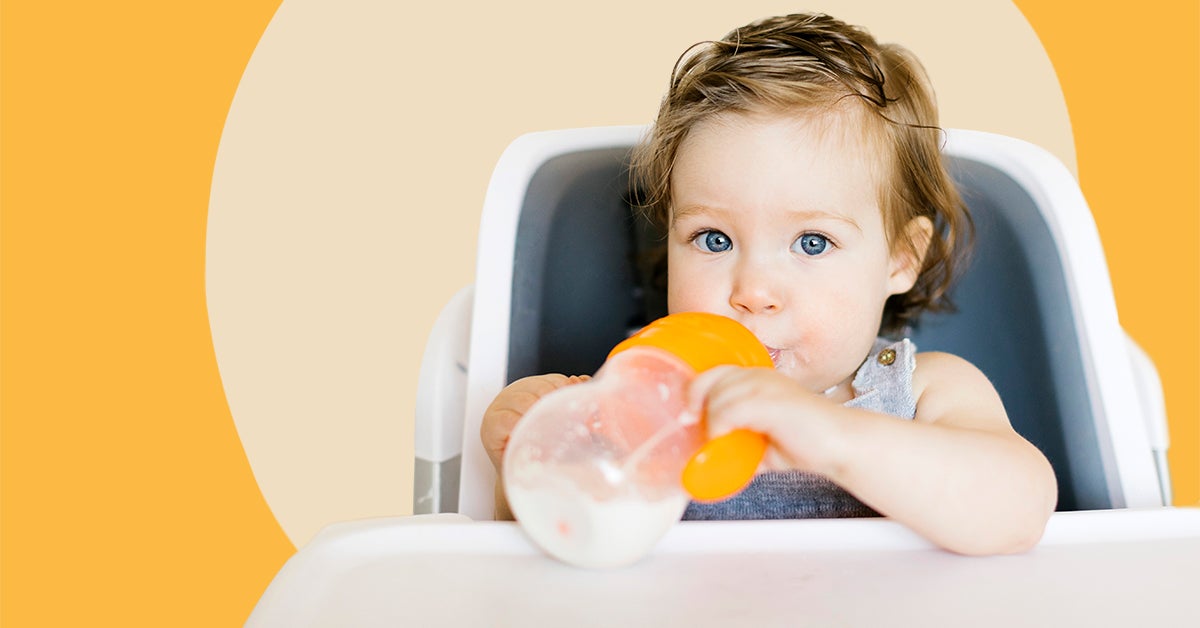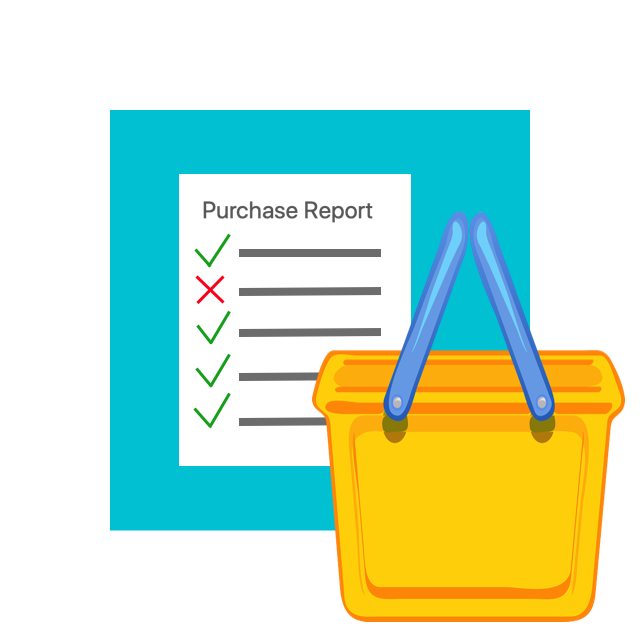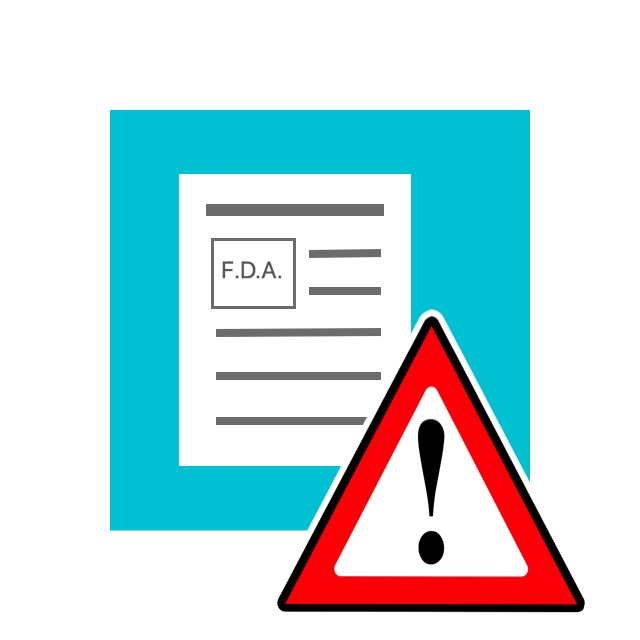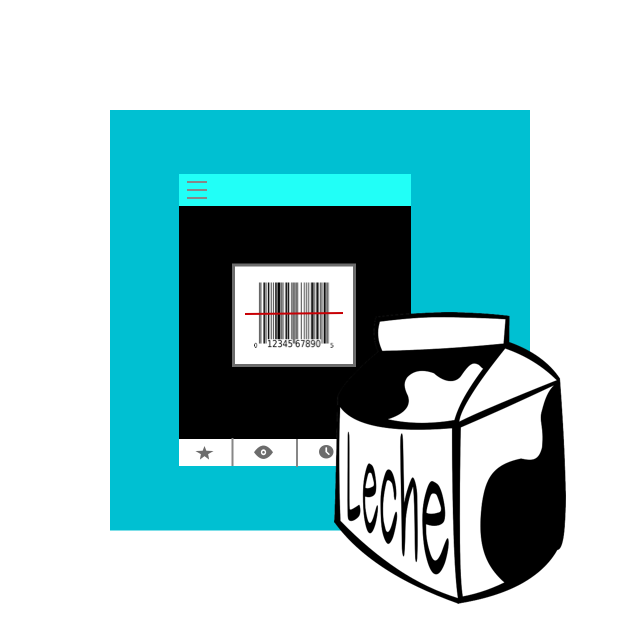
If your pediatrician has given you the green light to try a goat's milk formula, our guide to the best goat's milk formulas will help your search.
READ ARTICLE HIDE ARTICLE
If there’s one thing we know for sure, it’s that whether you breastfeed your baby, supplement with formula, or go all-in on the bottle, fed is best.
That being said, if you do decide to go the bottle route, a lot of baby formulas are available.
If your baby shows signs of a cow’s milk protein allergy or sensitivity, picking the best baby formula for your little one can feel more difficult, as most baby formulas are made from cow’s milk.
While not as widely available as traditional cow’s milk formula, there are a growing number of goat’s milk infant formulas on the market. In their search for alternatives to cow’s milk formulas, some parents look to these as a healthy choice.
Goat’s milk and cow’s milk do have many similarities, but are noticeably different nutritionally. It’s always important to talk to your pediatrician to see if they recommend trying goat’s milk formula for your baby.
If your baby has a true milk protein allergy, unfortunately, goat’s milk formulas will likely still pose a problem. However, there are some people with cow’s milk allergies who tolerate goat’s milk.
If your baby is only sensitive (rather than allergic) to cow’s milk protein, is mildly lactose intolerant (very uncommon in infants), or you have other concerns about cow’s milk, there may be some benefits of goat’s milk formula for your baby.
For one thing, goat’s milk has less lactose than cow’s milk (although it does contain some lactose, which is a sugar found in all animal milks). For the occasional lactose intolerant baby, this lower amount of lactose could ease much of their digestive discomfort.
Additionally, the fat and protein molecules in goat’s milk are smaller than those in cow’s milk, and therefore may be easier for babies to digest, though for most babies there appears to be no difference.
Goat’s milk infant formula that is produced in the United States is regulated by the Food and Drug Administration (FDA), which means it’s required to meet certain nutritional and safety standards.
Goat’s milk infant formulas produced in Europe are required to meet the European Commission’s standards for food products (which are arguably stricter than the FDA’s).
It’s very important to discuss your individual baby’s needs with your pediatrician before switching formulas. They’ll have insight into your baby’s specific digestive issues and what their nutritional needs are, and they help confirm the safety and nutritional value of the formula you choose.
In addition to ensuring that the formula you choose is made for infants (meaning it’s designed to meet the nutritional needs of babies under 12 months old), you’ll want to check the “use by” date to ensure ingredient freshness and potency, and follow the mixing instructions exactly.
Per the American Academy of Pediatrics, babies under 1 year old should never be fed plain whole milk, whether it’s from a cow or a goat. Infants’ digestive systems may not be ready for plain milk before then, and it’s not fortified with some necessary nutritional elements, such as iron.
Goat’s milk infant formulas — as approved by your pediatrician — should provide adequate nutrients for your baby.
Your pediatrician will also be able to give you advice about how to switch formulas and adverse reactions to watch for (which is especially important if your baby has a cow’s milk protein allergy).
While more research is needed to see if goat’s milk formulas are beneficial for babies with conditions such as allergies, eczema, and acid reflux, there is research looking at the benefits of using goat’s milk formula in general.
The possible benefits may include digestibility (compared to cow’s milk) and a positive effect on gut health.
One note of caution is that goat’s milk baby formulas may have a distinct taste that some babies don’t like. If your baby is consistently refusing their formula, they may be at risk for inadequate nutrition.
We reviewed nutritional guidelines, FDA and EC standards, and scoured reviews from parents and healthcare providers to bring you these top goat’s milk infant formulas. Several are manufactured in Europe, while others are produced in the United States.
It may be harder to find goat’s milk formulas in grocery stores, so you may find that your best option is to order from reliable online retailers, or directly from the manufacturer’s website.
One popular goat’s milk formula choice is the three-stage line from Holle. This European-made formula has been around for 80 years and meets the rigorous EU organic food labeling requirements. That means it’s made with very high animal care standards, and very high standards for the safety of raw ingredients.
It’s one of the few organic goat’s milk formula choices on the market, is free of palm oil (which may cause digestive issues for some babies), and has DHA added (DHA is an omega-3 fatty acid that may be important for brain and eye development).
The formula is available in three stages, for babies age 0–6 months, 6–12 months, and over 12 months old.
Kabrita is a Dutch company that now has a U.S. branch for their products, so you may be able to find their formulas in some stores. You’ll notice that it’s technically labeled a toddler formula, which means per U.S. guidelines it should not be used for exclusive formula feeding under the age of 12 months.
However, the company claims that their toddler formula meets the FDA nutrition standards for infant formula, and many parents rave about the superior taste (or lack of yucky taste), ease of use, and availability of Kabrita formula.
Another pro for this formula is that it meets EU non-GMO requirements (which are pretty stringent regarding restrictions on use of pesticides, additives, etc.). It also has a more similar protein composition to breast milk than some goat’s milk formulas, which may make it easier for some babies to digest.
If you decide this is an option you’re interested in and your baby is less than 1 year old, you should definitely review the nutrition label with your pediatrician before switching.
Another European-made formula, Nanny Care Goat Milk Infant Formula is on the pricier side (it’s also sold in larger amounts) and usually has to be ordered from specialty websites. However, it’s a true infant’s formula and is highly rated by parents, who say it seems gentle on their baby’s tummy.
The company is very well established, and in fact helped fund some of the original research to determine the safety of goat’s milk baby formulas. This formula also avoids palm oil (which some people feel can be constipating), and has some actual goat’s cream in it which provides a healthy blend of fats more similar to those in breast milk.
This U.S.-made formula is a bit easier to find than some of our other options. It’s also organic and non-GMO, so you can feel good about the ingredients. It’s highly rated by parents, and of course meets FDA standards for infant nutrition.
While the simplicity and quality of the ingredients is superior to many commercial formulas, some parents reported that it has a slightly grainy texture, even when mixed. Other parents disliked the pouch-style packaging, stating that it was more difficult to use than a canister (and when you’re mixing a bottle one-handed with a screeching baby in the other arm, ease of use is a big deal).
This unique option is not, in fact, an actual infant formula. It’s a baby formula recipe. This may sound a little nerve-wracking, and to be honest, it should.
Almost every expert will NOT recommend making your own baby formula at home -— there’s just too much risk for error, and your baby’s nutrition during the first year of life can have serious consequences on their current and future health.
Still, we wanted to mention this kit in the chance you’ve grown curious about a DIY option (although you can already tell what our opinion is, can’t you?).
Mt Capra claims that their kit (which is quite expensive) comes with everything you need and very clear instructions for making an at-home baby formula that meets FDA guidelines for infant nutrition.
The makers claim that this is a much healthier option for your baby, as it contains more whole ingredients and is less processed than commercially prepared infant formula.
If you have come across this product and think it sounds like a good fit for you, make sure to have a serious conversation with your pediatrician before trying it.
While breast milk is the recommended nutrition for your baby, you may choose to supplement or not to breastfeed for a variety of reasons.
Traditional infant formulas have a cow’s milk base, but there are a number of goat’s milk formulas available today. You may be considering a goat’s milk formula if you heard your baby might be able to digest it well (particularly if they have a cow’s milk sensitivity).
It’s important to review any formula decision with your pediatrician to make sure that your little one is receiving all the nutrients they need for a healthy first year of life.
Learn More from Healthline





